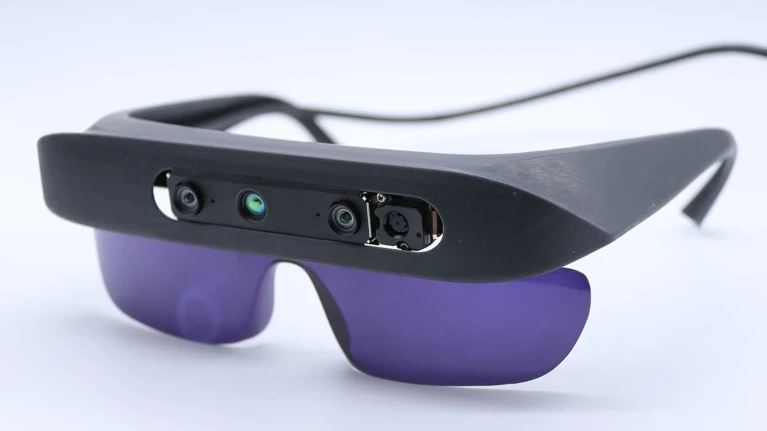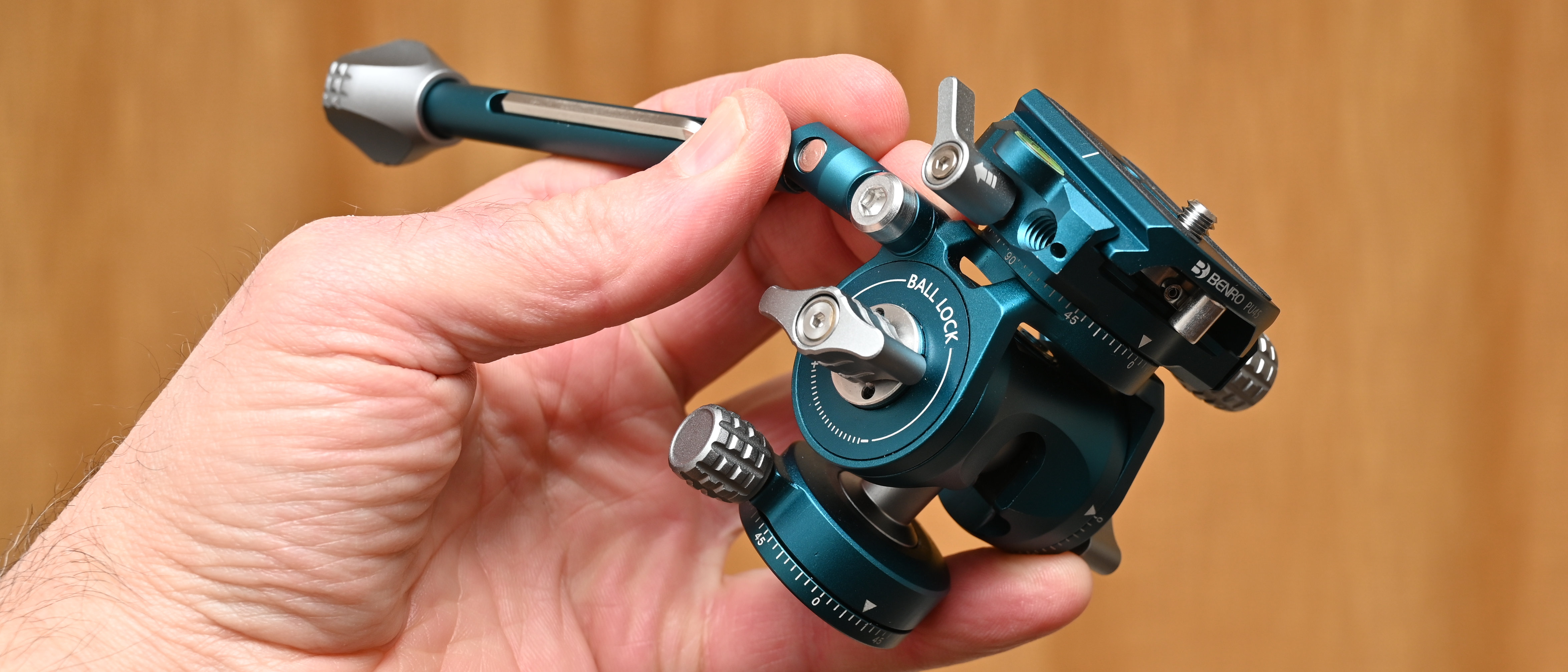AI for good: This wearable AI camera helps visually impaired people navigate
Prototype glasses featuring AI camera technology promise to replace white canes and enhance the lives of many

Finally, news that sounds like a fantastic way to use AI technology for good! In tests, an innovative AI camera mounted on glasses could improve actions of visually impaired people by 25%.
The wearable device offers helpful audio alerts to provide location information and uses vibrations to convey how far away objects are, reports Nature.
"This system can partially replace the eyes," says study co-author Leilei Gu, an AI researcher at Shanghai Jiao Tong University in China.
The AI device was tested by a group of 20 people with visual impairments, resulting in improved walking distance and navigation time by 25% compared to those using a white cane, as stated in a paper published in Nature Machine Intelligence.
The prototype looks like a trendy pair of sunglasses, with the camera positioned at the upper center of the frame. "The system features a pair of glasses equipped with a camera that captures live images of the wearer’s surroundings," explains Nature.
"A tiny computer processes these images using machine-learning algorithms trained to detect the presence of other people and objects such as doors, walls and furniture.
"The device gives the user audio cues about their surroundings every 250 milliseconds, producing a beep in either the right or left earphone to guide them in the right direction."
Get the Digital Camera World Newsletter
The best camera deals, reviews, product advice, and unmissable photography news, direct to your inbox!
For further navigational assistance, the vibration function, performed through 'artificial skin' patches, worn on wrists and fingers, vibrates when obstacles are in sight.
Developers are currently working on making the glasses lighter and more discreet for everyday use, in the hope that this device can replace a white cane.
"This paper is about how to make a very, very intelligent stick," says Botond Roska, director of the Institute of Molecular and Clinical Ophthalmology Basel in Switzerland. But he adds that it is "too early to say" to what extent people will actually adopt the technology.
You might also like…
Canon's World Unseen exhibition offered a fascinating insight into how people with visual impairment see the world. Other cameras designed for the visually impaired include the Sony HX99 RNV kit and the Raspberry Pi-powered blind camera.

Kim is the Staff Writer on Digital Camera World, and formerly Technique Editor at Digital Photographer, focusing on the art and science of photography. With a Master’s degree in Photography and Media, she is driven to educate through an analytical approach, visually and technically. With her guides and tutorials, Kim seeks to uncover new facets of this time-honoured medium and foster a deeper understanding of its profound role in culture. Kim highlights topics that resonate with modern society, including women in photography and critical issues such as environmental conservation. She also discusses and reviews camera gear, giving you an overview to find the best fit for your photography journey.
You must confirm your public display name before commenting
Please logout and then login again, you will then be prompted to enter your display name.
